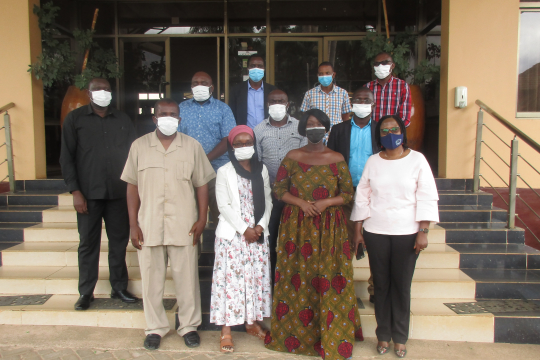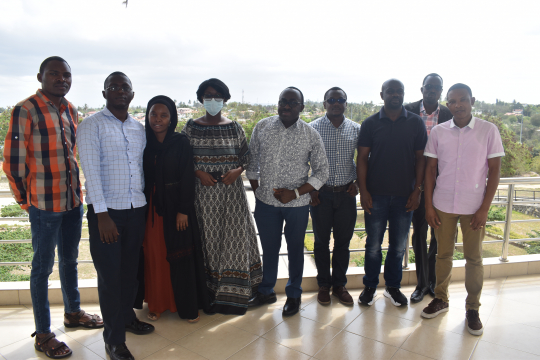Senior officers from several Tanzanian ministries participated in the workshop. The purpose was to discuss key policy instruments to use to achieve a green, inclusive economy.
The workshop was part of the Inclusive Green Economy IGE program which aims to strengthen the countries and the region’s capacity to achieve a transformation to a green economy. Five countries participate in the program: Tanzania, Ethiopia, Kenya, Rwanda, and Uganda.
The participants in the workshop represent the Ministry of Agriculture; Ministry of Livestock and Fisheries; Ministry of Natural Resources and Tourism; Ministry of Energy; Ministry of Minerals; National Environment Management Council and researchers from the academia.
Dr. Aloyce Hepelwa and Dr. Byela Tibesigwa, both EfD Senior research fellows, and IGE fellows from the Vice President’s office lead the discussion during the workshop that took place on the 14th to17th September 2021, at Nashera Hotel, Morogoro.
Presented a review report
The participants in the program, called IGE fellows, presented a review report which shows to what extent Tanzania is implementing economic policy instruments, success, and gaps, and challenges in attaining the inclusive green growth objectives.
Tanzania’s IGE Fellows are Dr. Hussein M. Omar, Environmental Officer; Mr. Cletus Ignace Shengena, Principal Economist; Mr. Kalokola Selestini Rwabizi, Senior Economist; Dr. Makuru James Nyarobi, Environmental Officer; Ms. Maria G.Omary, Fisheries Officer; and Mr. James Chuyi, Environmental Management The IGE fellows are supported by Mr. Azizi Sadi Mussa as a Policy Engagement Specialist
Highlights several sectors
The Tanzania Inclusive Green Economy Policy Review Report is a study on key programs, strategies, policies, and acts from environmental-related Ministries. That includes the five-year development plans (FYDPs) and the National Strategy for Growth and Poverty Reduction (NSPR), Tanzania Development Vision (TDV) 2025; and other sector-specific programs and policies. He added that the report highlighted areas of crop, livestock, fish farming, beekeeping, fisheries (capture and aquaculture), wildlife, tourism, energy, water, urban planning, and minerals, to identify priorities, challenges, and opportunities.
First report of its kind
The Tanzania Inclusive Green Economy Policy Review draft report is the first comprehensive report to bring together key environmental topics in Tanzania from a program and policy instrument perspective, and she, therefore, calls upon a stakeholder approach in finalizing the report.
Forestry is an important issue
Some of the participants were interviewed during the workshop about achieving an Inclusive Green Economy. Dr. Revocatus Mshumbush, a Permanent Secretary of Tanzanian Forestry Research Institute is concerned about charcoal burning. Forests are threatened by increased charcoal production due to the increase in population and demand for a cheap source of energy. He predicts that by the year 2030 almost 2.8 million ha of forests will have been lost if serious measures are not taken. The environmental burden includes the emission of million tonnes of inert gases. The loss of forest cover will ultimately cause degradation of soil quality, increased soil erosion, degradation of water sources, and disruption of rainfall pattern inducing draught which brought adverse impact in agricultural production. He highlighted this as a major challenge to be addressed in the policymaking process to attain a green economy.
The workshop was essential for IGE fellows to formulate project ideas, and learn about national priorities, challenges, and opportunities related to the national green economy.
By: Salvatory Macha
Facts, the Inclusive Green Economy (IGE) program
EfD and Gothenburg Centre for Sustainable Development (GMV), collaborate in an extensive program for capacity development in Eastern Africa, IGE. This program strengthens the national capacity to create an inclusive green economy. The training focuses on economic instruments while considering the social aspects of the policy implementations.
The IGE program is fully sponsored by Swedish Development Agency (Sida).

